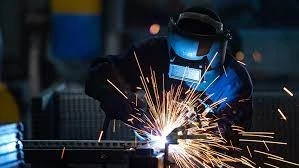When it comes to any project involving surfaces, materials, or even intricate craftsmanship, the choice of abrasive materials plays a pivotal role. Abrasives are a fundamental component in various industries, including metalworking, woodworking, automotive, and even in everyday DIY tasks. Choosing the right abrasive material is crucial for achieving desired finishes, precision, and efficiency. This guide will walk you through essential considerations to help you make an informed decision tailored to your project’s requirements.
Understanding Abrasive Materials
Abrasive materials come in various forms such as sandpaper, grinding wheels, belts, and abrasive discs. Each type is engineered to serve specific purposes, from smoothing surfaces to removing material. The Abrasives Abrasive materials are the key element, varying in hardness and composition, with common materials including aluminum oxide, silicon carbide, and zirconia alumina.
Factors to Consider
Material Compatibility: Different abrasive materials are suitable for specific surfaces. For instance, while aluminum oxide works well with ferrous metals, silicon carbide is better for non-ferrous metals and non-metallic surfaces like ceramics and glass.
Grit Size and Type: Grit size determines the coarseness or fineness of an abrasive. Coarser grits remove more material faster, while finer grits yield smoother finishes. Additionally, the type of grit impacts the aggressiveness of the abrasion.
Application and Task: Identify the primary purpose of the abrasive material. Are you grinding, sanding, or polishing? The intended task dictates the ideal abrasive material for efficiency and precision.
Cost and Durability: Consider the balance between cost and durability. Some abrasive materials might be more expensive initially but last longer, providing a cost-effective solution in the long run.
Selecting the Right Abrasive Material
For Metalworking:
Aluminum Oxide: Ideal for general-purpose grinding and works well with ferrous metals like steel and iron due to its strength and durability.
Zirconia Alumina: Known for its longevity and ability to handle heavy pressure, it's suitable for stainless steel and other tough alloys.
For Woodworking:
Silicon Carbide: Excellent for sanding wood and non-ferrous metals. It prevents clogging and provides a smooth finish.
Ceramic Alumina: Offers fast cutting for hardwoods and high-pressure applications in woodworking.
For Automotive and Polishing:
Cubic Boron Nitride (CBN): Preferred for precision grinding on high-speed steels and exotic alloys.
Diamond Abrasives: Known for exceptional hardness and used for grinding and polishing hard materials like ceramics and stones.
Conclusion
In conclusion, the selection of the right abrasive materials significantly influences the outcome of your project. By considering factors such as material compatibility, grit size, intended application, and cost-effectiveness, you can make an informed decision. Remember, the right abrasive material not only enhances efficiency but also ensures precision and quality in your work. So, choose wisely and let your project shine with the perfect abrasive match!



